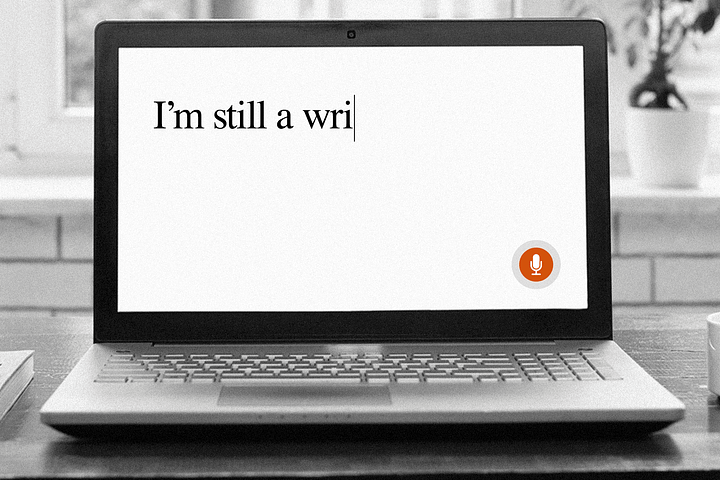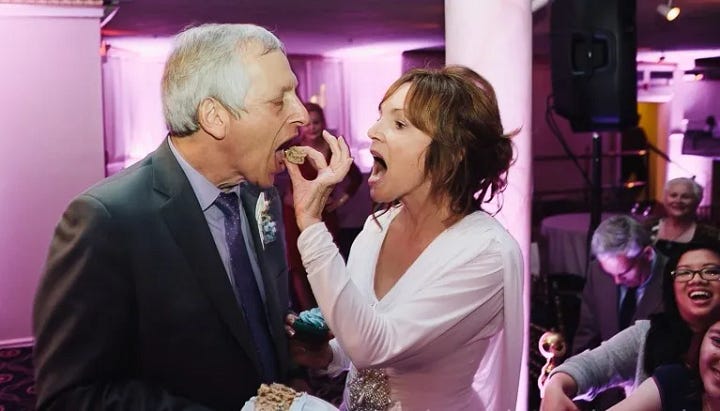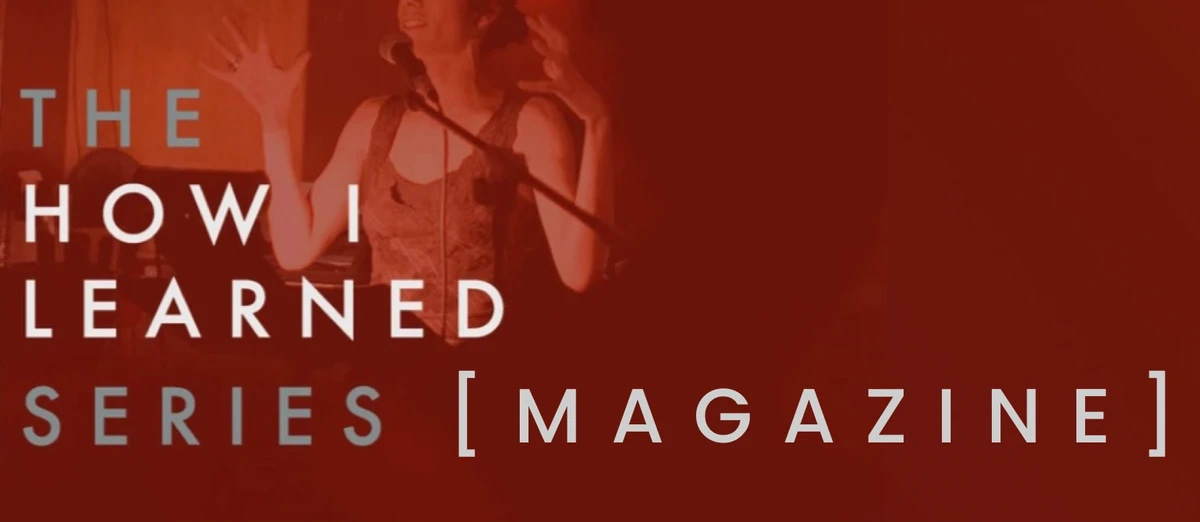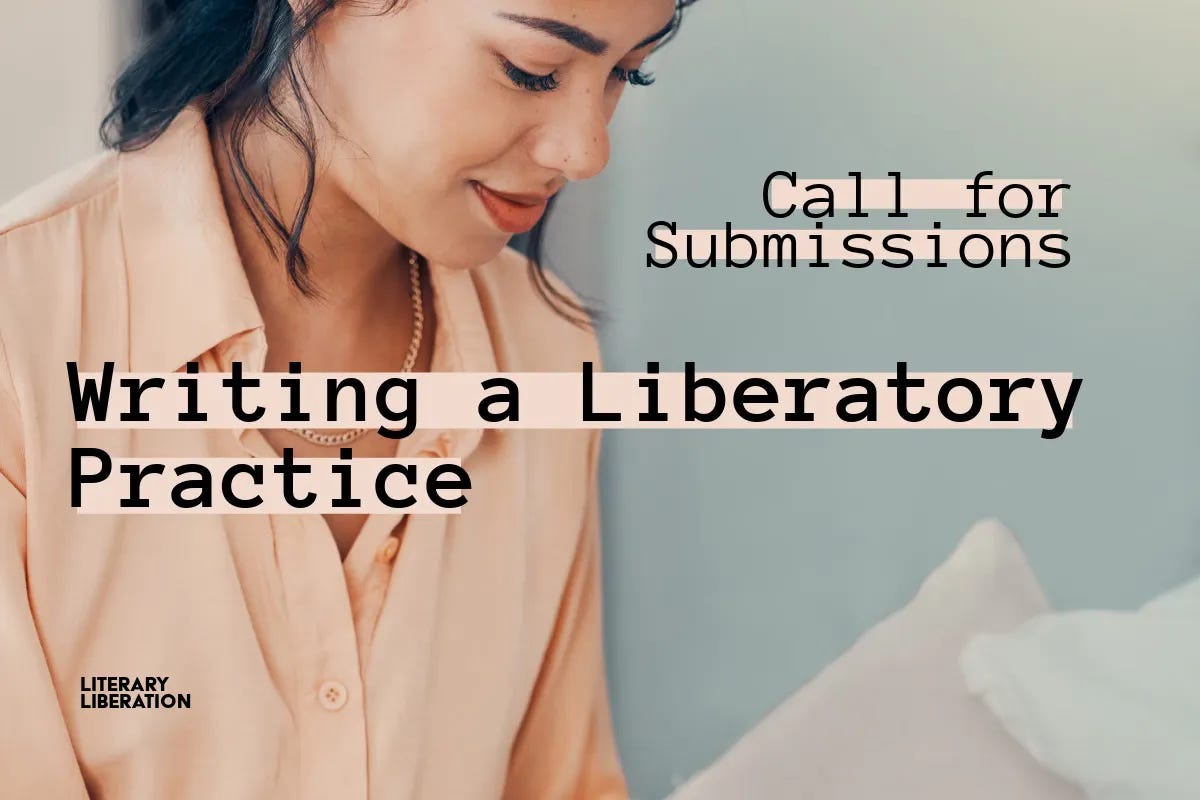Essays and Workshops and Submissions, Oh, My...
Including: Workshops from Alexander Chee, Lilly Dancyger, Narratively Academy, Blaise Allysen Kearsley, and Melissa Petro; and calls for submissions from Kearsley and Literary Liberation.
Welcome to Memoir Land—a newsletter edited by
, now featuring four verticals:Memoir Monday, a weekly curation of the best personal essays from around the web brought to you by Narratively, The Rumpus, Granta, Oldster Magazine, Literary Hub, Orion Magazine, The Walrus, and Electric Literature. Below is this week’s curation. ⬇️
First Person Singular, featuring original personal essays.
The Lit Lab, featuring interviews—The Memoir Land Author Questionnaire—and essays on craft and publishing. There are also weekly writing prompts and other exercises from, ahem, a New York Times bestselling ghostwriter of memoirs (that’s me) exclusively for paid subscribers.
Goodbye to All That, where I’m continuing to explore my fascination with the most wonderful and terrible city in the world, something I began doing with two NYC-centric anthologies, Goodbye to All That, and Never Can Say Goodbye.
*While I have you…I could use some more support in the form of paid subscriptions. If I’ve featured your work or that of your publication’s contributors…if you’re a publicists whose clients I’ve regularly featured…if you just want to help me keep doing this and paying contributors, please consider becoming a paid subscriber…*
Memoir Land is on Substack Notes and BlueSky.




Essays from partner publications…
How to Make a Living as a Writer
by
“When people ask what I do for a living, I’m faced with two choices: either I can lie or I can bore them with the truth, which is too complicated to explain succinctly. While those around me have normal, definable jobs—accountant, journalist, engineer—my work requires headings and subheadings to get it across properly: a map of overlapping gigs and contracts.”
Addiction Is a Story of Wanting Gone Awry (Excerpted from I'll Tell You When I'm Home)
by
“There was and how much there was. Kan yama kan. How many narrators. How many endings. When there is deep trauma. When that trauma has taken root. A technique in narrative therapy: asking the client to tell the story in third person.”
There’s No Place Like Home—Except the Beach: Visual Stories of Montauk, New York (Excerpted from Ditch: Montauk, New York, 11954 by Nat Ward.)
by Rufus Wainwright and Jörn Weisbrodt
“Montauk calls itself ‘The End,’ but it never seems to reach an endpoint. Quite the opposite. It is in a continuous state of beginning, starting over and over again but never really coming to a conclusion of what it actually is. All the dreams humankind has put on it seem to end before they are realized. Constantly in flux, like its shoreline that gets shaped by storms and the tide, Montauk seems never to fully realize itself.”
My Love, My Executioner
by
“It all comes down to this: we are each concerned that the other’s interpretations of our pain might prematurely hasten the pulling-of-the-plug or the giving-of-the-pill. Can I trust that my adoring husband might one day accurately put himself in my orthopedic Asics and know precisely when my time on Earth should end?”
Essays from around the web…
In Defense of Despair
by
“I say despair in lieu of any other word because I like the weight of it, the way it both sounds and feels. Depression and anxiety are clinical terms, the terms doctors see when they search charts to learn about my afflictions. But despair feels like something one can sink into, even comfortably, to a degree; I can be consumed by it while still engaging in my quotidian activities.”
What I Learned When I Went Back to My Old Therapist
by Kera Bolonik
“It was a kind of muscle memory that led me back here: L.P. understood my depression better than anyone in my life. She was the person who helped me climb out all those years ago. So when she asked me why I was really in her office, I suspect she already knew. It took me some time before I saw that I’d been reminiscing with purpose: not to stall or atone or absolve myself for the person I once was — but to figure out how to get better again.”
Devastate Me
by
“The doctor asks a series of questions to determine if I’m a good candidate for ketamine therapy. He takes his time, seems careful and conscientious. This is the responsible way to do ketamine. (Not like with Matthew Perry. Not like with Elon Musk.) A young woman sits in on the conversation and dutifully takes notes; she must be some sort of assistant in training. At one point, as I tell my story, she stops writing and just looks at me. It turns out I’m a good candidate.”
Dislodging a Navel Stone
by
“Mom’s been dead for over twenty-five years now. I ponder what it will be like when one day, our spirits will meet again. Will my spirit want to hide since I’ve grown so different from who we once were together? Or will our spirits unite in comfort and familiarity, celebrating the connection we once had? Or have we both gone on our separate journeys never to meet up again? Whatever the unknown, my soul needs to quiet, to rest without fear, to let go. I trust that the mother-daughter love between our imperfect beings is what lingers, not the fragments of our flaws.”
L.A. Affairs: I grew up on Disney princesses and fairy tales. Was I ready for my own happily ever after?
by
“Marriage has been ingrained in me since I could form memories. That my purpose in life is to get married and have babies. I know this sounds old-fashioned and maybe that has something to do with the fact that I was born a girl in the Soviet Union to a Jewish family, but I’ve spent my life toggling between the tradition of marriage and the liberal Los Angeles ideologies I internalized. I’ve often found myself wondering if it is even possible to be a good writer, an artist and be married.”
Notes on Jacaranda Season
by
“It is always a wonder: an extravagance of blossoms emerging overnight, the shade of lilac — not quite violet but a gentler pastel — so rarely encountered in nature, gracing the intervals of leafy avenues. A gentle surprise. You step out one cool morning to be greeted by their fully-dressed splendour, and that is when you know the interminable, tepid winter has finally ended, and there will be no more evenings spent bundled up in sweaters indoors: spring has arrived in Mexico City.”
A Complicated Joy
by
“You assume nothing because you’ve been through too much with too many boys who will never be men –boys who taught you hard lessons on the cruel semantics of love when they tell you they love you but are not in love with you – and you think all over again fuck them all, and then you realize you fucked them …”
What if Your C-Section Inspired Your Child's Need to Escape?
by
“Raise your hands if you’ve got young children who climb out windows, the Rabbi says to us—a small group of single Jewish mothers. I laugh out loud until half—perhaps 15—raise hands. Now, keep your hands up if you’ve had a C-Section. The Rabbi barely glances from his book. Two hands lower.”
The Way We Weren’t: Inside the Leo Cave
by
“After those two days, he packed his things and left, but we kept in touch. I was relieved he didn’t turn into a squatter, but I also missed having him in my bed. I was taken aback by the sense of loss that hung over me for a stranger I had only shared a fleeting few days with. It was astonishing how someone I barely knew could make me vulnerable, his laughter still echoing in my mind and his touch lingering like a haunting melody. I didn’t know I was capable of those feelings.”
On Sisterhood Across Time, Borders and Babies
by Cori Howard
“Every text elicits a memory, a smell, an emotion. We are nine years apart, and at polar opposite ends of the parenting spectrum. At 53, I did not expect to be reliving my own long ago, newborn experiences through the prism of my sister’s baby, and certainly not at the exact time as I navigate the transition away from daily motherhood, with my own two children having recently left home for university and their own adult lives.”
Hotel Cult: You Can Check Out But You Can Never Leave
by
“And when I turned from everything she wanted for me, she was still my sun, though I found myself on its dark side. Still, she looked at me as if the stars had birthed me, and I felt their dust in my mouth turn into a voice that carried all the dreams she tried to keep from me. For women, dreams are dangerous, and she loved me too much. But I dreamed them anyway — for her. That was our secret bond. Her unlived life, a fire inside me.”
🚨Announcements:
📢 Craft Seminar: How To Write An Essay Collection with via The Shipman Agency
“This is a lecture class in two parts with suggested but not required readings and 6 writing prompts, 3 per class, that I have used to write essays for my next collection. There is no workshop component. Students will be sent a suggested reading list after registration. Reading the collections under discussion is recommended but not required.”
Two Sessions: Sundays, July 13 + 27 1:00-3:30pm ET; $200
📢 Apply by June 4 for the next session of Lilly Dancyger's Essay Collection Incubator! (July 19-Dec 6)
Generate, revise, and prepare your essay-collection (or memoir-in-essays) manuscript for submission—with guest authors and industry professionals, craft lectures and exercises, and multiple rounds of workshop feedback.
📢 Submit to Blaise Allysen Kearsley ’s new “How I Learned” magazine…
The How I Learned Series was a live reading/storytelling/comedy show created by Blaise Allysen Kearsley in 2009. The monthly series ran for a little over a decade with events in the Lower East Side, Brooklyn, and New Orleans, and included benefits for Emily's List and Housing Works.
Featured guests included Mira Jacob, Alexander Chee, Ayo Edebiri, John Fugelsang, Anna Sale, James Hannaham, Hugh Ryan, Sasheer Zamata, John Wray, David Carr, Starlee Kine, Taylor Negron, Issac Fitzgerald, Aparna Nancherla, Emily Flake, Dodai Stewart, Choire Sicha, Jami Attenberg, Maggie Estep, Rosie Schaap, and many others.
How I Learned has been "on hiatus" since the Covid shutdown. Now, it's being resurrected as an online magazine.
What to submit: Nonfiction essays: 1500 - 2500 words Flash nonfiction: up to 800 words.
Email subject heading: “Submission - How I Learned.” Add a brief synopsis of your piece. Attach your submission as a Word or Google doc. Send to: howilearned@gmail.com
Soft deadline: June 16th Hard deadline: June 20th
📢 Short + Slant: Playing with Unconventional Forms of Personal Essay |Blaise Allysen Kearsley 4-Week Online Workshop for BIPOC Writers
The art of memoir and personal essay writing has evolved into an ever-expanding form of creative truthtelling.
Writers like Claudia Rankine, Ira Sukrungruang, Jonny Sun, Camonghne Felix, Tamiko Nikamura, and many others blow up the colonialized formulaic ideas of what memoir can be. Their voices challenge expectations and illuminate how well-crafted variations on the short-short form can contextualize and amplify lived experiences.
In this generative workshop we’ll play with braided, hermit crab, fragmented, lyric, hybrid, and intuitive essay forms to see what our first-person narratives can do.
This is an independent workshop.
Sliding scale and payment plans are available.
Wednesdays, June 4th - 25th, 2025; 6:30 - 8:30 pm ET Cost: $150 - $325
📢 At Narratively Academy: Reading Like a Writer
A new workshop at Narratively Academy:
Reading Like a Writer: A Book Study of Skinfolk with Audrey Clare Farley, with a visit by Skinfolk author Matthew Pratt Guterl—This five-week book study takes place on Wednesdays from 7 to 8:30pm ET. Class starts on June 4 and ends on June 25. Cost: $175
📢 Melissa Petro’s Esalen Workshop July 14–18: Writing for Shame Resilience: Turning Shame Into Your Superpower
What if your greatest vulnerability could become your greatest strength? This transformative language arts workshop is designed for anyone ready to level up by unlocking their authenticity.
The curriculum draws from the wisdom in the instructor’s critically acclaimed book, Shame on You: How to Be a Woman in the Age of Mortification, which explores how shame is weaponized in our culture to keep us from knowing our worth and achieving our goals. Through reflective writing, shared stories, and guided readings, participants will explore ways to break free from shame’s grip and reclaim their power.
Participants will be invited to:
Learn about their unique shame triggers.
Develop a greater awareness of how shame functions in our society.
Cultivate vulnerability by sharing intimate stories in a safe space.
Practice empathetic listening as others speak their uncomfortable truths.
📢 Call for Submissions for a Collaboration Between Memoir Land and Literary Liberation
Memoir Land and Literary Liberation will co-publish an essay series called “Writing A Liberatory Practice.” Rate: $150. For submissions guidelines, deadlines and more, visit Literary Liberation.
📢 Attention Publications and writers interested in having published essays considered for inclusion in our weekly curation:
By Thursday of each week, please send to memoirmonday@gmail.com:
The title of the essay and a link to it.
Your name and Substack profile link, if you have one, so I can tag you in the post.
A paragraph or a few lines from the piece that will most entice readers.
Please be advised that we cannot accept all submissions, nor respond to the overwhelming number of emails received. Also, please note that we don’t accept author submissions from our partner publications.










Another amazing round-up! Thanks for including Connie’s essay :)
Thanks so much!